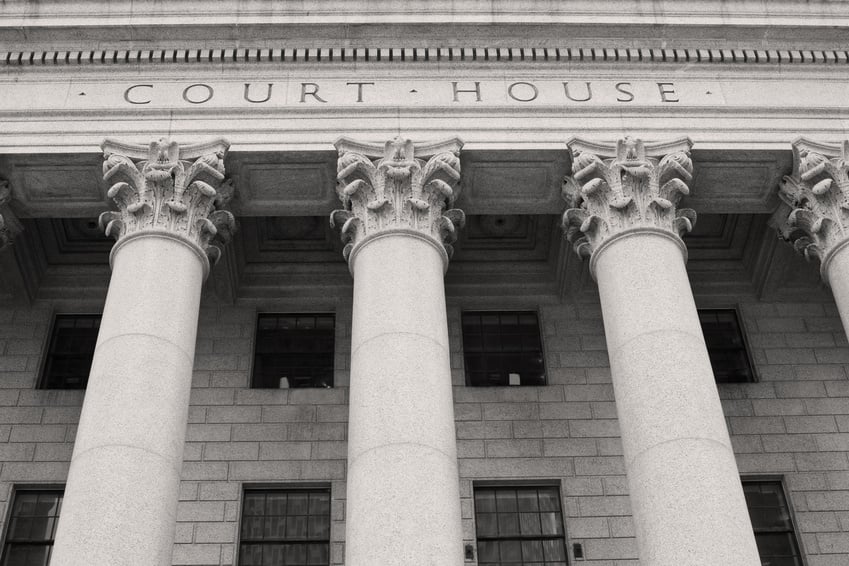Under the FCPA Corporate Enforcement Policy, there will be a presumption of declination if a company self-discloses misconduct, fully cooperates and remediates, absent aggravating circumstances. If a criminal resolution is warranted, there will be a reduction of the fine. Even in situations where there has been no self-disclosure, the company may still have a reduction of the fine, as long as it fully cooperates and timely and appropriately remediates.
The importance of cooperation as a mitigating factor is thus very clear. The US Attorneys’ Manual (USAM, Title 9-28.700) explains that: “With cooperation by the corporation, the government may be able to reduce tangible losses, limit damage to reputation, and preserve assets for restitution. At the same time, cooperation may benefit the corporation – and ultimately shareholders, employees, and other often blameless victims – by enabling the government to focus its investigative resources in a manner that will not unduly disrupt the corporation’s legitimate business operations.”
USAM Title 9-28.700 also states that for a company to receive any consideration for cooperation, it “must identify all individuals involved in or responsible for the misconduct at issue, regardless of their position, status or seniority, and provide to the Department all facts relating to that misconduct.”
Given that, once the threshold requirements provided for in USAM Title 9-28.700 have been met, the DOJ “will assess the scope, quantity, quality, and timing of cooperation based on the circumstances of each case when assessing how to evaluate a company’s cooperation under the FCPA Corporate Enforcement Policy.” This evaluation is based on five requirements, in addition to the provisions included in the Principles of Federal Prosecution of Business Organizations (USAM 9-28.000). The requirements of the DOJ’s policy are as follows:
- According to USAM 9-28.720, “disclosure on a timely basis of all facts relevant to the wrongdoing at issue, including: all relevant facts gathered during a company’s independent investigation; attribution of facts to specific sources where such attribution does not violate the attorney-client privilege, rather than a general narrative of the facts; timely updates on a company’s internal investigation, including but not limited to rolling disclosures of information; all facts related to involvement in the criminal activity by the company’s officers, employees, or agents; and all facts known or that become known to the company regarding potential criminal conduct by all third-party companies (including their officers, employees, or agents);”
- “proactive cooperation, rather than reactive; that is, the company must timely disclose facts that are relevant to the investigation, even when not specifically asked to do so, and, where the company is or should be aware of opportunities for the Department to obtain relevant evidence not in the company’s possession and not otherwise known to the Department, it must identify those opportunities to the Department;”
- “timely preservation, collection, and disclosure of relevant documents and information relating to their provenance, including (a) disclosure of overseas documents, the locations in which such documents were found, and who found the documents, (b) facilitation of third-party production of documents, and (c) where requested and appropriate, provision of translations of relevant documents in foreign languages;”

- “where requested, de-confliction of witness interviews and other investigative steps that a company intends to take as part of its internal investigation with steps that the Department intends to take as part of its investigation;”
- “where requested, making available for interviews by the Department those company officers and employees who possess relevant information; this includes, where appropriate and possible, officers, employees, and agents located overseas as well as former officers and employees (subject to the individuals’ Fifth Amendment rights), and, where possible, the facilitation of third-party production of witnesses.”
 The policy highlights that in cases of de-confliction, the DOJ’s request will be for a limited time and “will be narrowly tailored to a legitimate investigative purpose.” Also, if the company finds itself in a financial condition that prevents it from cooperating more fully, it has the burden of proving it to the DOJ.
The policy highlights that in cases of de-confliction, the DOJ’s request will be for a limited time and “will be narrowly tailored to a legitimate investigative purpose.” Also, if the company finds itself in a financial condition that prevents it from cooperating more fully, it has the burden of proving it to the DOJ.

It is important to note that in addition to providing non-privileged documents and other evidence and making witnesses available for interview, the DOJ may also expect the company to assist, for example, in the interpretation of complex business records. These are factors that will also be considered in granting cooperation credits. Moreover, the DOJ may re-evaluate to what extent the company is cooperating where documents and witness testimony are provided in response to a subpoena and not voluntarily.
Finally, a company may still receive some credit even if it does not satisfy all requirements for full cooperation (e.g., if it only decides to cooperate later in the investigation or if it does not fulfill all criteria included in the policy). However, credit will be significantly less than for full cooperation, and the presumption of declination will have been lost.
SEC’s Evaluation of Cooperation by Companies
The SEC also has some general principles for evaluating a company’s cooperation when deciding on how to prosecute civil cases. These principles were established in the 2001 Report of Investigation Pursuant to Section 21(a) of the Securities Exchange Act of 1934 and Commission Statement on the Relationship of Cooperation to Agency Enforcement Decisions (Seaboard Report).
As explained in “A Resource Guide to the US Foreign Corrupt Practices Act” – which includes the DOJ’s and the SEC’s compilation of information on the FCPA – the SEC establishes in the Seaboard Report “four broad measures of a company’s cooperation:
- self-policing prior to the discovery of the misconduct, including establishing effective compliance procedures and an appropriate tone at the top;
- self-reporting of misconduct when it is discovered, including conducting a thorough review of the nature, extent, origins, and consequences of the misconduct, and promptly, completely, and effectively disclosing the misconduct to the public, to regulatory agencies, and to self-regulatory organizations;
- remediation, including dismissing or appropriately disciplining wrongdoers, modifying and improving internal controls and procedures to prevent recurrence of the misconduct, and appropriately compensating those adversely affected; and
- cooperation with law enforcement authorities, including providing SEC staff with all information relevant to the underlying violations and the company’s remedial efforts.”
These are items that will be analyzed by the SEC but are not exclusive, which still leaves discretion for the agency to evaluate each case individually. In the SEC’s cases, and as explained in the Resource Guide to the FCPA, “credit for cooperation by companies may range from taking no enforcement action to pursuing reduced sanctions in connection with enforcement actions.”
Therefore, companies may also be granted credits for cooperation in civil cases, which shows the importance of companies being aware of what is expected of them in order to receive the credits and benefits for cooperating with the government.
Useful links:
2001 Report of Investigation Pursuant to Section 21(a) of the Securities Exchange Act of 1934 and Commission Statement on the Relationship of Cooperation to Agency Enforcement Decisions (Seaboard Report): https://www.sec.gov/litigation/investreport/34-44969.htm



